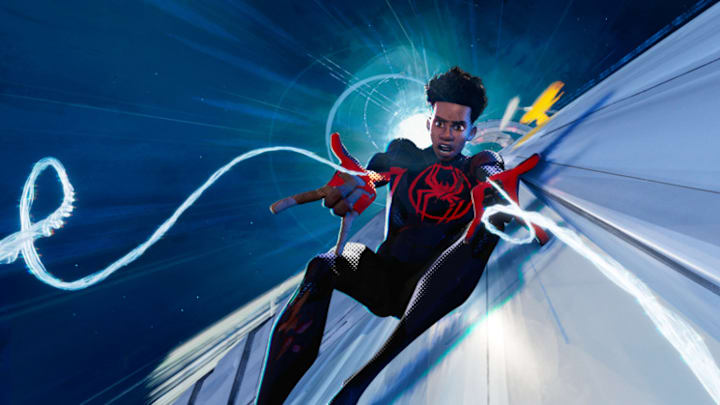The rollercoaster of emotions surrounding the Oscar race, especially in the Best Animated Feature category, often displays the full spectrum of human reactions to winning and losing. This year's Oscars were no exception.
We witnessed two distinctly different responses from the team of Spider-Man: Across the Spider-Verse to their loss. The film, a fan favorite, faced stiff competition and ultimately lost to The Boy and The Heron by Hayao Miyazaki, a living legend in the world of animation.
Christopher Miller, the producer and writer behind Across the Spider-Verse, gave us all a masterclass in grace under disappointment. Opting for a high road on social media, Miller's reaction was nothing short of sportsmanlike, acknowledging the win of The Boy and The Heron with a nod to its quality, referring to it as the "GOAT" (Greatest of All Time if you've been living under a rock).
Well, if you’re gonna lose, might as well lose to the GOAT
— Christopher Miller (@chrizmillr) March 10, 2024
This type of response isn't just about being a good loser - it's about recognizing and respecting the art and effort behind every nominee's work. It's a reminder that the Oscars, while competitive, are fundamentally a celebration of excellence in filmmaking.
On the flip side, Shameik Moore, who lent his voice to the character of Miles Morales, expressed a more visceral reaction. His initial response, claiming that Spider-Man: Across the Spider-Verse was "robbed," reflects a raw and unfiltered disappointment that many artists feel when their work does not receive the recognition they believe it deserves. But, looking at Moore's subsequent messages, they showed a complexity to his feelings - acknowledging his competitive spirit and youth, and ultimately extending respect to the winners.
Respect to the winners. It’s true, I’m definitely a sore loser, but we didn’t lose, Spiderverse has impacted ALOT of lives, we may not have been acknowledged tonight but life goes on, and BEYOND….. yea get ready 😤
— Shameik Moore (@shameikmoore) March 11, 2024
This evolution in Moore's public reactions highlights a journey of emotional processing that many people can relate to when faced with setbacks or losses. I, for one, can completely relate to this kind of knee-jerk reaction.
Moore's response, while initially met with criticism, opens up a conversation about the passion and personal investment artists put into their work. It's a reminder that behind the glamorous veneer of awards ceremonies, there are individuals who pour their hearts and souls into their projects. Moore's candidness, in its own way, humanizes the experience of participating in such a high-stakes event as the Oscars. The contrast between Miller's and Moore's reactions to their Oscar loss offers a fascinating glimpse into the personal dynamics of dealing with public recognition and disappointment. While Miller's approach was marked by a composed acknowledgment of the winning animated movie, Moore's journey from a gut reaction to a more reflective stance underscores the diverse ways individuals navigate their emotions in the spotlight.
Regardless of the outcome, Spider-Man: Across the Spider-Verse stands as a testament to the creative vision and innovative spirit of its makers. It's a reminder that the value of art isn't solely determined by awards but also by its impact on audiences and its contribution to the medium.
As both Miller and Moore look ahead, their reactions post-Oscars will be remembered as much for their humanity as for their contributions to an already beloved film.
